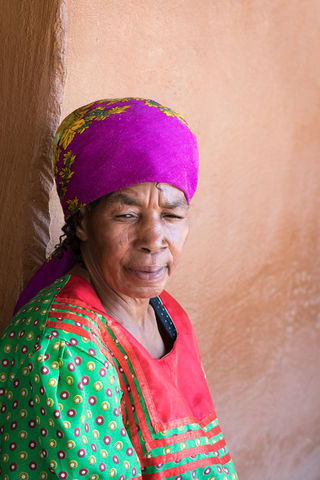
Wisdom
Remembering, Meaning, and Wholeness in Later Life
Making peace with onself and one's life.
Posted March 3, 2019

At a recent 80th birthday luncheon in honor of Eleanor, our friend and long-time colleague, someone asked her, “What’s this time of life like for you?” She paused thoughtfully and gave a somewhat surprising answer. Eleanor continues to offer lectures and trainings around the world, but rather than sharing her enthusiasm about one of these, she told us, “A lot of it is remembering things from the past and seeing how it’s all connected, how that was necessary so that this could happen later. I think about that a lot these days.”
In addition to her rewarding work life, our friend seems to be engaged in what pioneering gerontologist Robert Butler called the life review—a process of reflecting on the memories that spontaneously return in later life and finding the threads of meaning and value that run through them, in order to come to a sense of wholeness and completion about the life one has lived. Butler observed that the review process helps prepare us for death, but it also has profound benefits for living. The life review can bring a deeper sense of meaning and purpose to our life, enhance psychological well being, deepen our store of wisdom, and enrich what we have to share with the human family.
Welcoming Memories and Emotions
Memories are messengers, much like dreams. They usually point to something important, and they come in the service of wholeness and well being. Each memory, and the emotions it invokes, is an opportunity to relive and better understand our ourselves and our life. Revisiting the people and scenes of the past that come calling allows us to savor and be grateful for the blessings we’ve known. (And neuroscientists point out that savoring positive emotions and experiences helps to sculpt the brain toward greater contentment.)
Uncomfortable memories, like nightmares, are also important to attend to because they illuminate the stepchildren of our souls, the parts of our history that need to be reckoned with and integrated. Welcoming and reflecting on memories about which we still carry guilt or resentment, for example, can ultimately lead to necessary forgiveness, deeper understanding, and acceptance of ourselves and others.

Befriending Bewilderment
The life review brings us face-to-face with our immense complexity—and our contradictions. One memory illustrates our pettiness, another our generosity, and our task is to face and ultimately find a way to hold and accept all that we are and have been. This can be bewildering work, but as psychiatrist Carl Jung pointed out, we are not simply this or that. We are “multiplicities,” composed of an enormous range of qualities, many of them apparent opposites. And it is the tension of contradiction that often brings forth some of the richest understanding of ourselves, and of others. As ethnologist Barbara Myerhoff and author Deena Metzger observe in Remembered Lives, it is the wide variety of memories that come calling in later life that enables us to see our life story and ourselves more fully and more truthfully.
Like life itself, the life review is complex and often messy. In The Uses of Reminiscence gerontologist and psychotherapist Marc Kaminsky points out that for most older people the life review is “not composed of an orderly progression of memories, organized into a coherent narrative . . . Life reviews are largely quilt-work affairs, a matter of bits and pieces all stitched together according to a not very readily visible pattern.” However, in the midst of what may seem to be random and sometimes contradictory memories, over time, an underlying pattern of meaning and cohesiveness begins to reveal itself.
Life reviews are as varied as human beings, and several films illustrate the myriad forms the reminiscence process can take, for example, Enchanted April, Evening, The Straight Story, The First Grader, Fried Green Tomatoes, The Woman in Gold, and The Best Exotic Marigold Hotel. For many, the life review is a solitary process; for others, it entails taking important action in order to make peace with oneself or with others. And for many, sharing life stories with others is essential and often benefits those who hear them too.
Sharing Our Stories
As important as the life review is for us, it is not for ourselves alone that we remember. As gerontologist Ron Manheimer points out in Kaminsky’s All That Our Eyes Have Seen, “We are mistaken . . . in thinking that people remember only for the sake of the past, when in fact old people remember for the sake of the future.” One of the traditional roles of the elder is storytelling. And in sharing the stories of our own life and of those who have gone before, we pass on wisdom and reaffirm our interconnectedness, the continuity of life, and the endurance of the human spirit.
In our hurried, virtual, and isolating postmodern world, these legacies of wisdom, belonging, and hope may be more crucial than they have ever been. But that is a tale for another time and a later blog.

